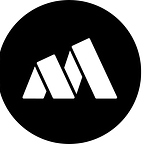Finding a Way to Feed The World
How Bayer Crop Science is creating new ways to help farmers feed the world
Leading a large organization is full of high stakes situations that can make or break a company. But in some cases, a company’s livelihood isn’t the only thing on the line. Sometimes, and this is not hyperbole, the entire world is relying on the decisions you make.
Elisha Hermann is a Global Supply Chain Strategy and Innovation Partner at Bayer Crop Science, where she and her team are on a mission to make sure the world doesn’t starve. And if that isn’t challenging enough, she’s also helping to figure out how to make feeding the world equitable and sustainable utilizing the technology that’s at the heart of everything Bayer does. The stakes are high and things like infestations, soil erosion, supply chain issues, legislation, trade, and climate change add wrinkles to the problem at every turn.
Hermann has a background in global trade and has helped companies solve complex supply chain challenges by utilizing technology. She puts this experience to work at Bayer, but that wasn’t what initially drew her to the company. Ultimately, Hermann wanted to help people, and at Bayer, she could do that on a global level. At Bayer, Hermann and her team work on big projects like trying to eradicate hunger, make farms more sustainable and ensuring that smaller farms in less-developed parts of the world like India and Africa can remain prosperous.
With such lofty goals, what keeps the team at Bayer going? How are they innovating with consistency?
“They never settle,” Hermann says. “We find new RnD products or new digital solutions, but we’re not finished yet. It doesn’t stop there. It’s embedded in the whole company — it’s always what’s next for us.”
Added to this forward-looking policy is a fail-fast mentality, which Bayer relies on to bring innovative solutions to market.
“As soon as we can get to that minimum viable product, we can choose go or no-go,” Hermann says. “If that didn’t work, what are the other options? How can we move forward? “
Technology-based solutions are Hermann’s specialty. One of her recent favorites involves blockchain and its ability to track the apple in your fridge from seed to your crisper drawer.
“Essentially, we can use seeds and track and trace them all the way from the creation of the seed, to the distribution, to the farmer, to the harvest, and then all the way to the process and refinery and beyond,” Hermann explains. “So, we can follow one little, tiny seed to see where it ends up and you will have a whole of information surrounded by that.”
Another solution that Bayer has developed to provide accurate data to farmers is FieldView, a digital farming platform that takes historical data, adds four years of satellite images, and offers quick accurate analysis of crops to maximise production. But this technology is constantly changing, and Bayer has to stay ahead of every advancement. And it needs to continue innovating and improving the supply chain at every stage to ensure that data and food are all being shared in an equitable fashion.
“Supply chains will become less complex, a lot more visible and ecommerce-central,” Hermann predicts. And she says that the end result of the move to shorter supply chains is that there won’t be invisible supply chains.
With eyes constantly looking toward the future, and thanks to the company’s ethos to never settle and to have data lead the way, Bayer has proven that it can be a difference-maker throughout the world. And that’s a good thing, because the world needs help, and the problems aren’t getting any easier to solve.
“It’s a pretty high stakes game,” Hermann says. “But we know that in order to give a good experience or to increase the yield for the crops to support, the population that’s growing, we need to move fast because babies are still being born and people still need to eat.”’
________
For more on Bayer’s innovations in digital farming, listen to Business X-Factors here.
—
Business X factors is produced by Mission.org and brought to you by Hyland.
For over a decade, Hyland has been named a Leader in the Gartner Magic Quadrant for Content Services Platforms, leading the way to help people get the information they need when and where they need it. More than half of 2019 Fortune 100 companies rely on Hyland to help them create more meaningful connections with the people they serve. When your focus is on the people you serve, Hyland stands behind you. Hyland is your X factor for better performance. Go to Hyland.com/insights to learn more.
